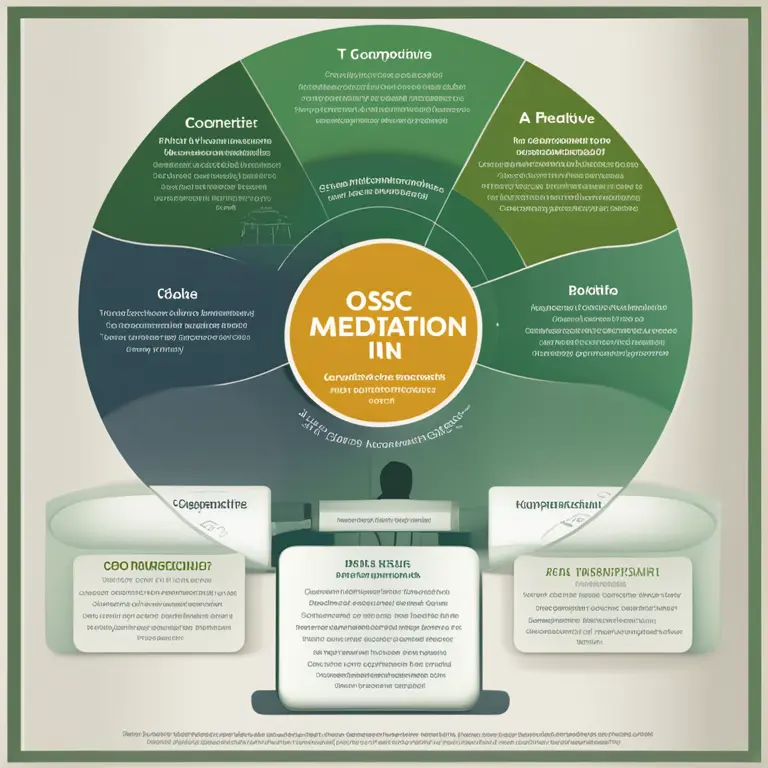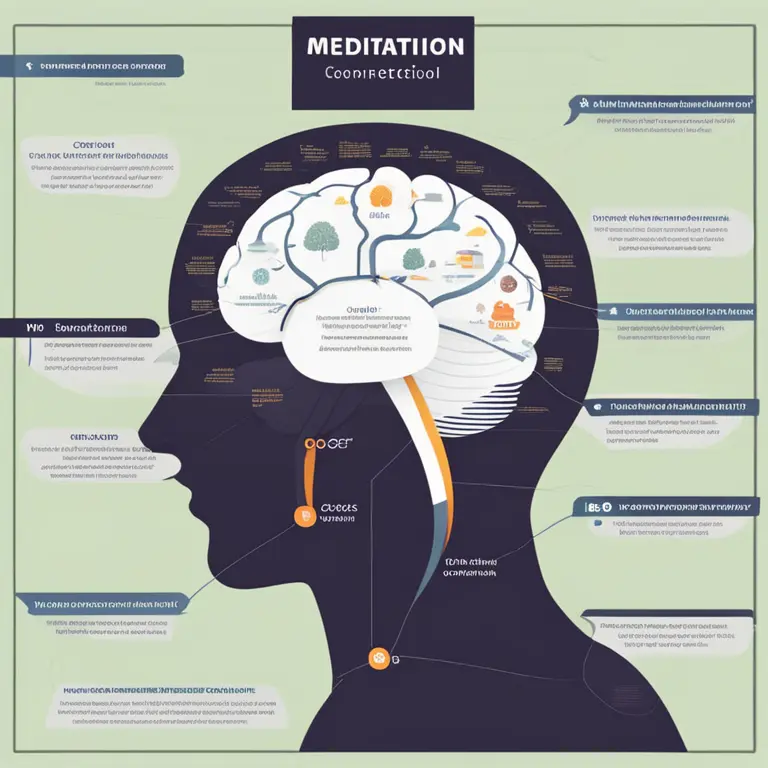
Meditation's Impact on OCD Management
Discover how meditation techniques can complement traditional OCD therapies and potentially alleviate symptoms of this challenging condition.
article by Hina Kurosawa
Meditation and OCD: An Introduction
Stress and anxiety are fertile grounds for obsessive-compulsive disorder (OCD), a condition characterized by unwanted thoughts (obsessions) and repetitive behaviors (compulsions). Sufferers often seek various treatments, from medication to psychotherapy. However, as we progress into 2024, the emphasis on holistic approaches has brought meditation into the conversation. The practice of meditation, rooted in ancient traditions but supported by modern science, fosters mindfulness and relaxation—qualities that can influence the OCD landscape.

The Science Behind Meditation
Understanding how meditation might benefit OCD requires a dive into the science of neuroplasticity. Studies indicate that regular meditation can actually change brain structure and function, particularly in regions related to attention, emotion regulation, and habit formation. For those grappling with OCD, meditation's potential to reshape neural pathways offers a ray of hope, suggesting habitual thought patterns may be malleable.

Meditation Techniques for OCD
Particular meditation methods have gained traction among mental health professionals. Mindfulness-Based Stress Reduction (MBSR) and Mindfulness-Based Cognitive Therapy (MBCT), which focus on present-moment awareness without judgment, can help OCD sufferers interrupt spirals of obsession and compulsion. Additionally, techniques such as body scan meditation and loving-kindness meditation provide alternative pathways to cultivate a different attitude toward intrusive thoughts.

Integrating Meditation into OCD Treatment
Meditation is not a standalone cure for OCD but can play a significant role in a comprehensive treatment plan. Therapists encourage its practice alongside Exposure and Response Prevention (ERP) therapy, the gold standard for OCD treatment. When combined, these strategies bolster the individual's ability to cope with triggers, reduce stress, and improve overall psychological flexibility.

The Benefits of Long-term Practice
The benefits of meditation for those with OCD are most pronounced with consistent, long-term practice. Over time, individuals may experience a reduction in the frequency and intensity of obsessions and compulsions. Importantly, the practice of meditation promotes a general sense of well-being and self-awareness, which can empower those with OCD to lead a more balanced and controlled life.
Getting Started with Meditation for OCD
Getting started with meditation requires no special equipment or environment. Many find guided meditations specifically designed for OCD sufferers helpful, and these can be found through mental health resources, meditation apps, or local meditation centers. Building a routine and finding a supportive community are key for those embarking on this journey toward healing.
Conclusion
As we look beyond 2024, the intersection of meditation and mental health care continues to evolve. For individuals with OCD, incorporating meditation into their treatment regimen could be a transformative experience. By reducing stress, enhancing self-awareness, and promoting a sense of inner peace, meditation offers a complementary approach that holds promise in the face of OCD.
Published: 1/14/2024
Modified: 1/15/2024
More predictions
Come back here soon to learn more about yourself and your future


Calming the Storm: Mindfulness Meditation for Anger
Discover how mindfulness meditation can be a powerful tool for anger management, promoting inner peace and emotional balance.


Mindfulness & Meditation: A Guide for High Schoolers
Discover the benefits of mindfulness meditation tailored for the hectic life of high school students, and learn simple strategies to incorporate it into the daily routine.


Mindfulness Meditation: A Handbook for High Schoolers
Discover how mindfulness meditation can benefit high school students, enhancing focus, reducing stress, and promoting overall well-being.